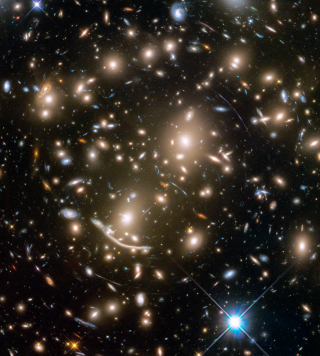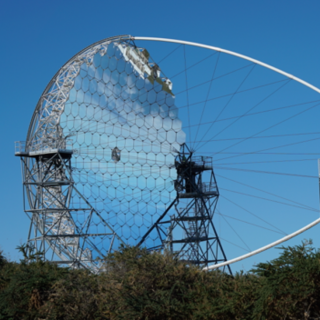Bibcode
Rosa González, D.; Muriel, H.; Mayya, Y. D.; Aretxaga, I.; Becerra González, J.; Carramiñana, A.; Méndez-Abreu, J.; Vega, O.; Terlevich, E.; Coutiño de León, S.; Furniss, A.; Longinotti, A. L.; Terlevich, R. J.; Pichel, A. C.; Rovero, A. C.; Donzelli, C.
Bibliographical reference
Monthly Notices of the Royal Astronomical Society, Volume 482, Issue 4, p.5422-5429
Advertised on:
2
2019
Citations
5
Refereed citations
5
Description
We present new spectroscopic data of the BL Lac RGB 2243 + 203, and its
surroundings, obtained with the OSIRIS Multi Object Spectrograph (MOS)
mounted in the Gran Telescopio Canarias (GTC). The spectra of neither
the BL Lac nor its host galaxy show any spectral feature, thus hindering
direct determination of its redshift. The spectroscopic redshift
distribution of objects in the MOS field of view shows four galaxies
with redshift between 0.5258 and 0.5288. We make use of a statistical
analysis to test the possibility that the targeted BL Lac may be a
member of that group. By using the spectroscopic redshifts obtained with
our GTC observations, we found that this probability is between 86 and
93 per cent.
Related projects

Galaxy Evolution in Clusters of Galaxies
Galaxies in the universe can be located in different environments, some of them are isolated or in low density regions and they are usually called field galaxies. The others can be located in galaxy associations, going from loose groups to clusters or even superclusters of galaxies. One of the foremost challenges of the modern Astrophysics is to
Jairo
Méndez Abreu

Particle Astrophysics
The members of the Particle Astrophysics Group of the IAC participate actively in three large international collaborations of high-energy astrophysics: AMS-02 (Alpha Magnetic Spectrometer), the Cherenkov radiation telescopes MAGIC I and II and the Cherenkov Telescope Array Observatory ( CTAO). We also participate in the ASTRI mini-array, the gamma
Mónica Luisa
Vázquez Acosta

Particle Astrophysics
The members of the Particle Astrophysics Group of the IAC participate actively in three large international collaborations of high-energy astrophysics: AMS-02 (Alpha Magnetic Spectrometer), the Cherenkov radiation telescopes MAGIC I and II and the Cherenkov Telescope Array Observatory ( CTAO). We also participate in the ASTRI mini-array, the gamma
Mónica Luisa
Vázquez Acosta